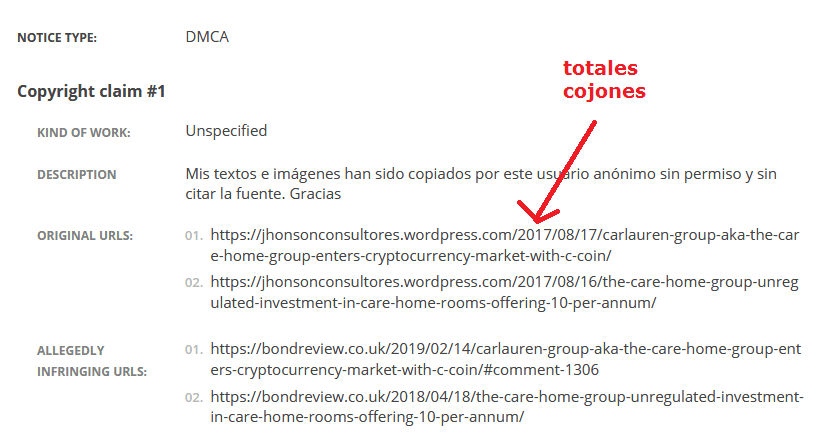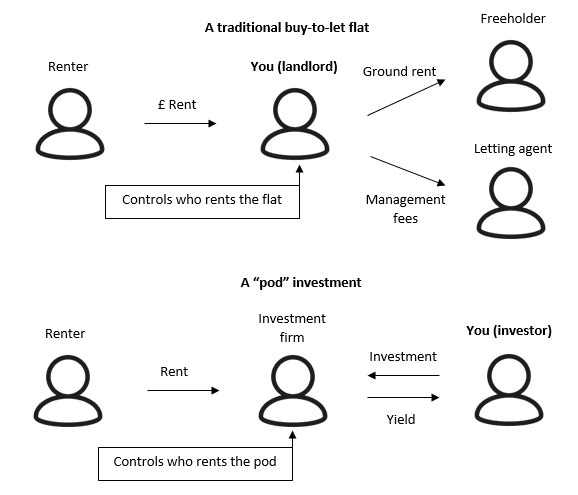Carlauren Group is not having an easy time lately. Added to its failure to raise more than a few thousand from its C-Coin care home cryptocurrency, it was temporarily unable to pay staff at the care home from which it was busy evicting elderly residents, and has also had to put plans to build an Ibiza-style beach club on the Isle of Wight on hold.
Last year Carlauren was projecting returns up to 14% per year from investing in its care home rooms.
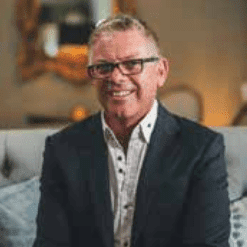
This year Carlauren pivoted into cryptocurrency, launching its “C-Coins” which it claimed would increase in value by 170% as soon as investors had ploughed in £35 million.
While CEO Sean Murray was trying to reinvent himself as the Satoshi Nakamoto of dementia care, however, Carlauren appears to have taken its eye off the ball at its care homes and construction projects.
Tyndale House closure
Residents, many of which were elderly and frail, were told they had just 28 days to find alternative accommodation.
Resident Julia Hart said: “It’s disgraceful, and really a bit daunting to say the least.
“I sold my house to come into Tyndale.”
Another resident, Marion Kemble, added: “I’m worried sick. I don’t know where I’m going to go.
“I’ve never cried so much in all my life because I’m scared where I’m going to end up.”
Residents were not the only one in distress. At the time, care home staff had not been paid for a month, although many had continued to work unpaid out of concern for the residents.
In a video posted publicly on the “Sandown Hub” Facebook group on 2 July, angry care home staff confronted Carlauren Chief Operations Officer Andrew Jamieson about the failure to pay their wages. The encounter was filmed with Jamieson’s consent, which he gives around halfway through the video.
Jamieson states
There is no money in the banks. There is nothing, I’m telling you. There will be money tomorrow. Because what happens is all the electronic money that is gathered from the weekend in the hotels is paid into the bank on Wednesday.
Staff naturally question why Carlauren is running itself so close to the wire.
– How can a big company like this not have any money?
It doesn’t have any money. I’m telling you now. I’ve raided Jets’ money…
– It’s gone bust?
I’ve taken a load of money out of Jets [Brev: Presumably Jets Bournemouth, acquired by Carlauren in October 2018] which is another company we have, I’ve taken money out of the television company that’s come in, I have…
– So why haven’t we been paid?
We haven’t got the money.
– Where’s the money gone?
We took it. It’s all gone.
– Who took it?
It’s been used for suppliers…
– But the suppliers haven’t been paid! Not at our care home they ain’t…
Would you listen? There’s six winding up orders…
https://www.facebook.com/SandownHUB/videos/497283954410935/
The back and forth peters out at this point as Jamieson once again reassures the staff they will be paid once Carlauren can shuffle across the takings from its hotels.
4 minutes into the video, Jamieson attempts to brings the meeting to a close by dropping a “my mum’s got 2 or 3 days left to live” dead cat on the table.
Said dead cat naturally takes the wind out of the staff’s sails, but before the meeting concludes, one staff member asks where Carlauren CEO Sean Murray is.
Jamieson states
Sean Murray is down south in a court… We have got 8 winding up orders, do you know what that means? All gone, all gone, all gone… unless we can get a third party investor into this company.

A staff member asks whether it is plausible that Carlauren can obtain further investment, at which point Jamieson winds up the meeting.
On Wednesday 3 July, according to the BBC, all the staff were indeed paid just as Jamieson promised. All the residents have been moved into new homes.
Ibiza-style beach resort
Carlauren was building a beach club and hotel in Sandown, Isle of Wight.
In early May 2019 it was hailed as “the first beach club of its type in the UK” with “indoor and alfresco dining in the Terrace restaurant, with local seafood, a cocktail bar, a swimming pool with DJ area, plus a roped-off section of Sandown’s beach – complete with sunbeds and a beach bar.”
Carlauren Marketing Director Ana Lucia told The Caterer:
Think cool Ibiza party – that’s the crowd we want to reach.
The company is moving into high-end hospitality.
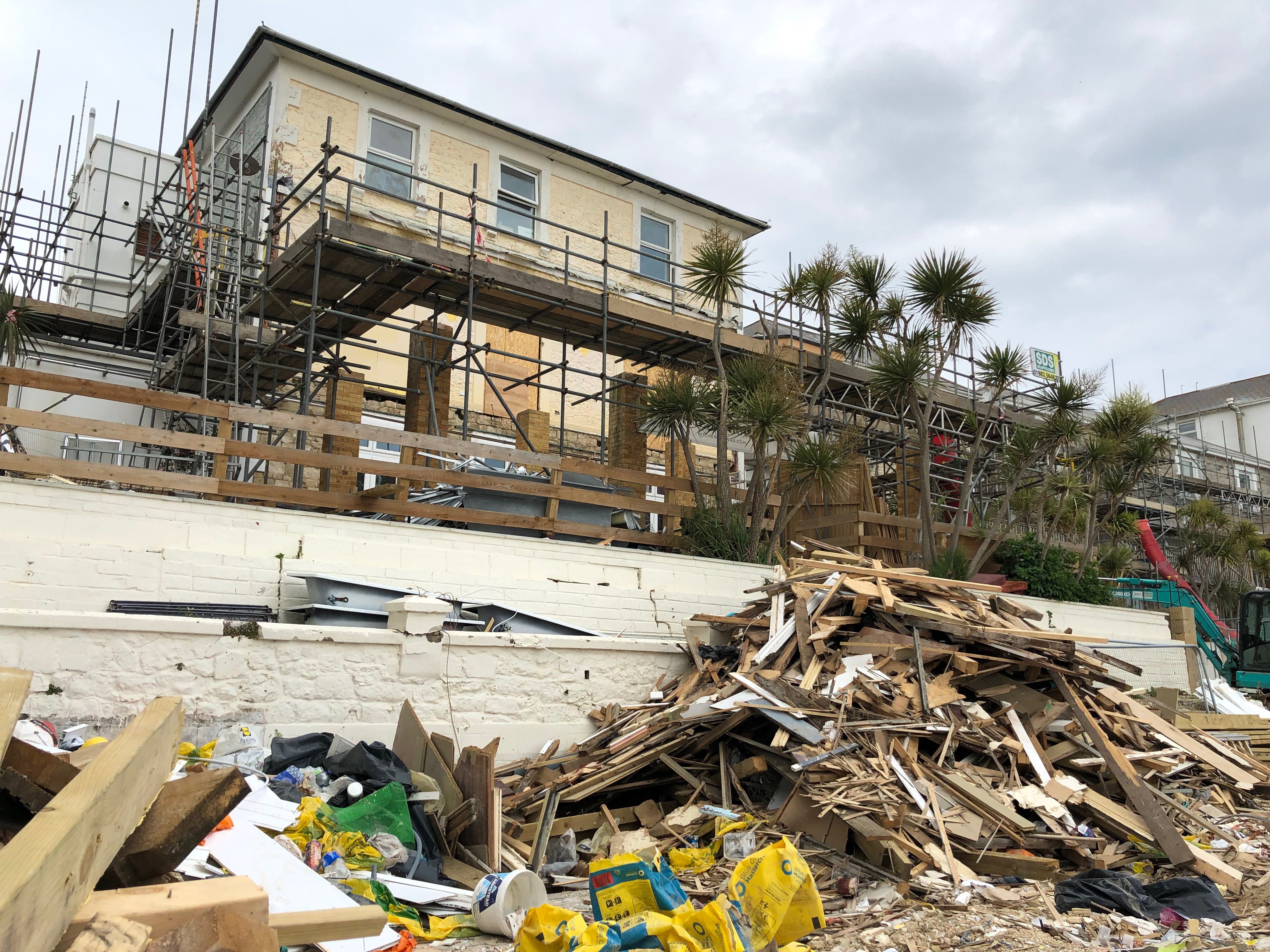
In late May, the project was abruptly postponed, and a launch party that had been planned for 1 June was cancelled, after structural issues with the building were discovered.
According to onthewight.com, an enforcement officer from the Isle of Wight council is now looking into the derelict state of Carlauren’s properties. Specifically Ocean Hotel (which Carlauren planned to turn into a care resort) and King’s House (the Ibiza-style beach club).
Councillor Debbie Andre stated:
“I’m disappointed that once again the town of Sandown suffers through irresponsible developers.
“I am very frustrated and concerned that we have another prime site that has actually been left in a much worse state.
“It is heart-breaking to be honest.”
Carlauren stated to the local press:
Carlauren understands that the area does not look aesthetically pleasing and this may cause distress to local residents.
Their patience is appreciated while we come to a resolution which will include, once able to return to site, clearing the debris.
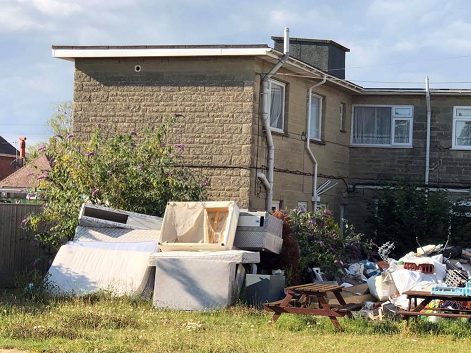 Last Sunday the admin of the Sandown Hub Facebook group posted a picture of a large amount of bedding and furniture stacked up outside another Carlauren property, Parkbury Hotel, also known as “The Winchester”.
Last Sunday the admin of the Sandown Hub Facebook group posted a picture of a large amount of bedding and furniture stacked up outside another Carlauren property, Parkbury Hotel, also known as “The Winchester”.
It has to be a fire and vermin risk, especially in this hot, dry weather. Feeling concerned as it’s right next to The Bay Primary School.
Environmental officers have been informed.
Where does this leave investors?
In a brochure issued by Carlauren last year, Carlauren claimed that it offered a profitable investment without “great risk”.
Real estate, despite the ever-fluctuating economy, continues to be a profitable investment.
In most cases, great investment comes with great risk; property however, is one of the few to dispel that myth. Putting your hard-earned wealth into land proves a wise investment time and time again, which is why we at Carlauren are extending an invitation to those who wish to invest in what is not only luxury resort and exceptional residential and care service, but also a case of prestigious real estate.
“Exceptional care service” and “prestigious real estate” appears to have actually meant distressed care home residents, staff paid late, and abandoned building sites full of crap.
The BBC’s Rory Cellan-Jones has been passed an investor newsletter which confirms that Carlauren’s care subsidiary has closed, having made losses of over £700,000 in two years, and that Tyndale House is being converted into a hotel.
According to Cellan-Jones, investors have been told that their returns will be unilaterally reduced by Carlauren, although this will be temporary.
The newsletter dismisses any adverse media coverage of Carlauren as the work of disgruntled staff.
This aggressive restructuring has had an adverse effect on the companies due to disgruntled staff contacting local media in order to express themselves.
We would ask that if and when any adverse information filters through the media channels to you, that you consider the material fruitful effect that our decisions have had and continue to have on our cash flow, which ultimately will benefit you, our clients.
If we hear anything regarding the winding up orders that Jamieson spoke about to the care home staff, we’ll let you know. A search in the Gazette for “Carlauren” returned no recent results at time of writing.
Sean Murray’s previous investment scheme; Detroit, distressed properties and dead rent collectors
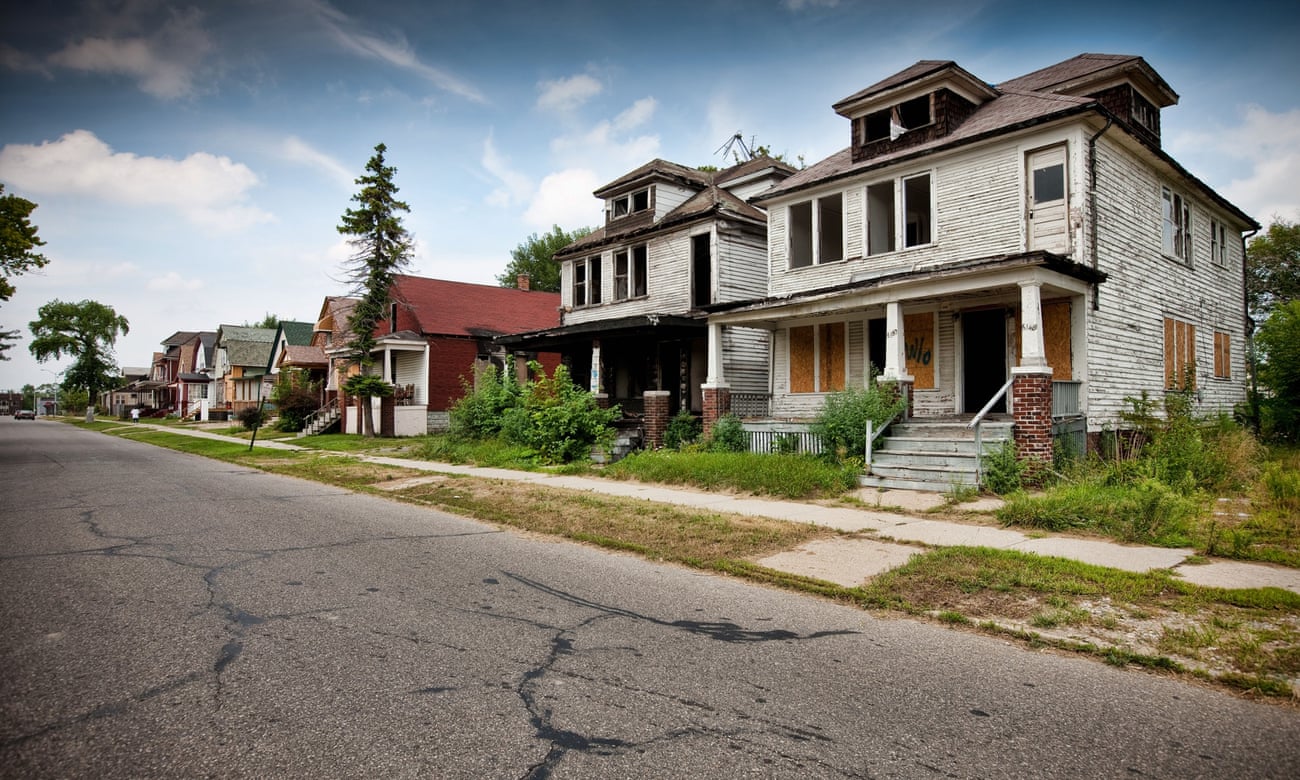
Prior to founding Carlauren Care, Sean Murray was named as the man behind an investment scheme which sold buy-to-let investments in Detroit, projecting returns of up to 23% per year. The Guardian reported in 2014 on one investor’s story:
If Pat Njagi had any nagging doubts about her buy-to-let investment in Detroit, they were surely confirmed last February when she was told that she wouldn’t be receiving that month’s rent. The reason? Her rent collector had been shot, robbed, and left to die on a doorstep. […]
The company that actually supplied and managed her property – another UK-based operation that went under two names, New Orbit Funding and Detroit Advantage – did initially produce the promised $625 a month rent, minus $875 for what she was told was boiler maintenance.
“Our rent collector was shot at point blank range through the chest whilst out collecting rent late one night and whilst he led (sic) there dying, the rent money that he was carrying was stolen,” it read.
According to the Guardian, the Detroit properties were purchased from a company called Experience International. Another company which went under two names, New Orbit and Detroit Advantage, supplied and managed the Detroit properties.
Steve Worboys, who ran Experience International, denies any wrongdoing and says his firm only marketed the properties on New Orbit/Detroit Advantage’s behalf. He said for every one client who’d had problems, 10 were satisfied. We asked for names of happy clients but none were provided. He added that as soon as he became aware of his clients’ issues he had stopped offering properties in Detroit. He claimed he is also owed money by the man behind New Orbit, Sean Murray, and is as keen as anyone to see him investigated by the authorities. Murray could not be reached this week.
Companies House documents for New Orbit Funding Limited (later renamed as Advantage Properties and then Appy Brands before being dissolved in 2015) and Carlauren companies confirm via date of birth that New Orbit’s Sean Murray and Carlauren’s Sean Murray are one and the same.
In Carlauren’s investment literature, any reference in Sean Murray’s bio to New Orbit is conspicuous by its absence. “Following a number of successful product and system innovations spanning internet/mobile phone networks, software and property development, Sean founded the Carlauren Group in 2015.”
At least nobody got shot this time.
Sean Murray’s next investment scheme: hotel investments paying 10% per year
In December 2018 Carlauren Group purchased Heritage Hotels Limited from its previous owners Geoffrey and Emma Ede.
Heritage Hotels has now been repurposed as Carlauren’s latest unregulated investment scheme. The Heritage Hotels website (heritagehotelsuk.com) states
Become an owner
Invest in a luxury hotel in the UK and receive 10% return per year
Despite offering what is clearly an investment security in Heritage Hotels (the website makes clear elsewhere that there is a “guaranteed rental return” of “up to 10% per annum”, which makes this an investment in Heritage Hotels itself, not just the purchase of a property), Heritage Hotels has no authorisation from the FCA to solicit investment.


